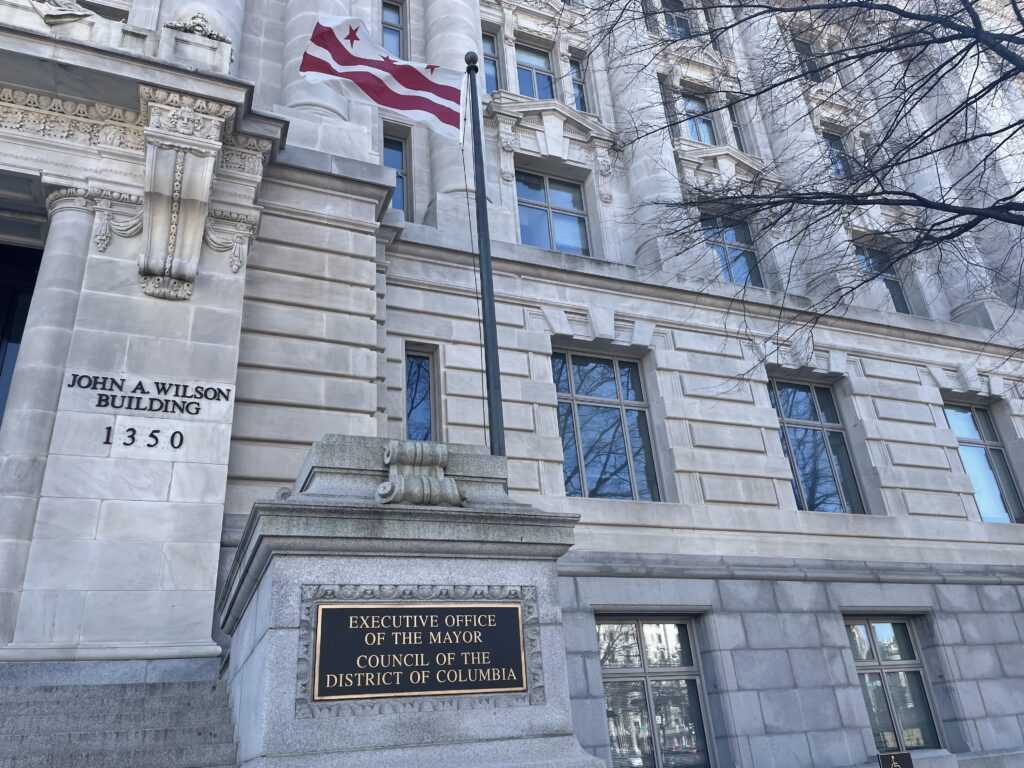I live in Prince George’s County, so why would I submit testimony against the Secure DC Omnibus Amendment Act of 2024?
In August 2017, I was coming out of the post office near my home one morning in Mt. Rainier when I was carjacked at knifepoint. Police pursued the carjacker into D.C., where he crashed, badly injuring two innocent people and himself.
As far as I know, no one died in that chase, but this is not always the case with police pursuits. In 2021, the deaths of Karon Hylton-Brown and Jeffrey Price in police chases led to a bill restricting dangerous, high-speed chases. The proposed crime bill would relax the restrictions.
I testified out of dismay that this and other dangerous practices would be reinstated, reversing important advances toward more humane, rational approaches to public safety that people called for in 2020, in which I and my family also participated. Is this progress to fade like the “Black Lives Matter” slogan the mayor ordered painted on the pavement near the White House?
The bill includes “drug-free zones,” rollbacks of policies around transparency and accountability and expansion of pretrial and preconviction detention, which unfairly burden the poor. The bill also enables for surveillance measures highly correlated with racial profiling and reduced police accountability.
Crime affects the poor and unhoused at alarming rates. Won’t intensifying policing help stop it?
Unfortunately, rather than benign defenders of public safety, law enforcement has long been a repressive, punitive institution designed for social control, especially of those deemed most threatening to the status quo — the poor and the unhoused.
The way the police handled my case did not make me or my neighbors in either Maryland or D.C. safer or help prevent carjackings like the one I experienced — which have continued to increase.
It is puzzling why politicians keep resorting to being “tough on crime” in the style proposed in this bill when studies and experience show that community-based social programs are most effective at preventing crime. As the D.C.-based Brookings Institution, hardly a radical source, said in 2022, “The U.S. government dramatically underspends on programs that are most effective at improving community safety, while allocating billions to punitive programs that harm both families and communities.” The proposed D.C. crime bill clearly follows this pattern.
Genuine public safety can only be guaranteed by institutions controlled by the people who are the most aware of what safety truly means for themselves and their communities.
The Secure DC Omnibus Amendment Act goes in the opposite direction, heightening policing and punishment, even though many question such measures. This includes the former director of the D.C. juvenile justice system, Hilary Cairns, who expressed concern in an interview with DCist about “over-incarcerating youth.”
While the entire metropolitan area will feel the effects of this legislation if enacted, the most vulnerable will be most affected.
In December I attended a workshop held by the Stop Police Terror Project-D.C. for people wishing to testify against the bill. The workshop, with activists and lawyers from the American Civil Liberties Union and other organizations, assisted citizens adversely impacted by D.C. police violence to prepare testimony stating why we are against the bill.
In addition to recounting my experience, I had a further motive for attending. I am writing a novel series set in the rapidly gentrifying Northeast neighborhood in D.C. The main characters include a community organizer and a group of teens who take over an abandoned recreation center to turn it into a community center. They live daily with policing practices like those contained in the bill.
My story is imaginary, but I aspire to portray the world my characters live in. As an activist and a writer, I want to support the fight for justice in the D.C. area. And as a novelist, I am committed to authentically portraying people confronting injustice — including police violence.
Juliana Barnet is an associate fellow at the Institute for Policy Studies and an activist, anthropologist, educator and writer.








